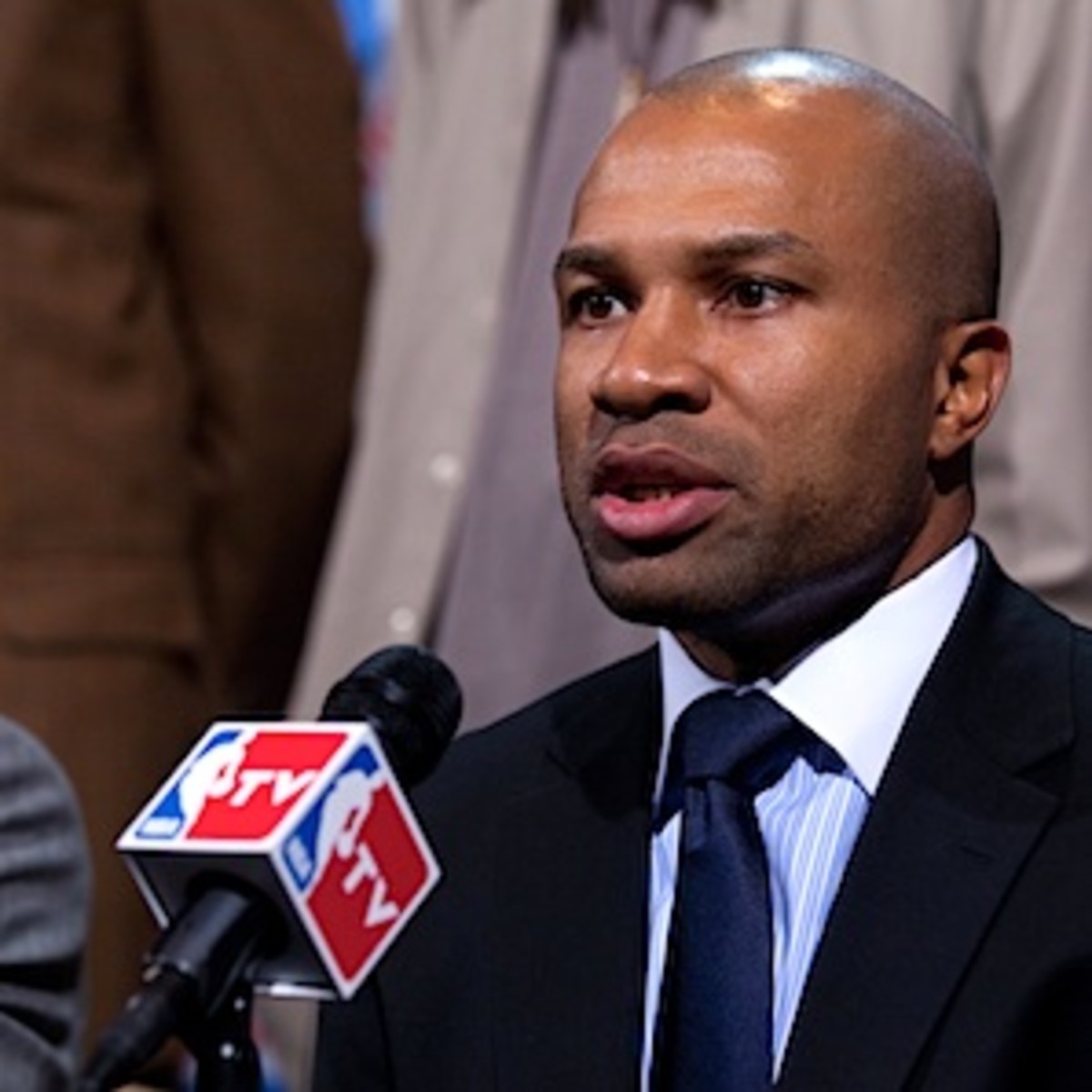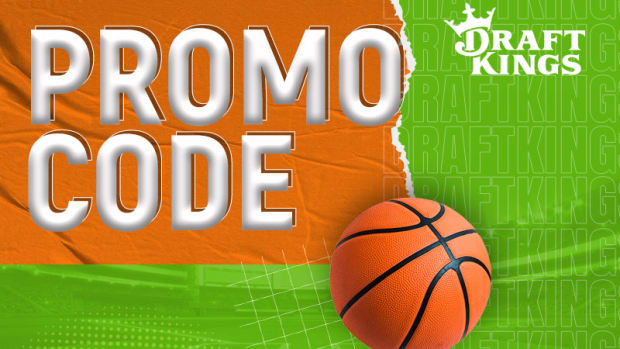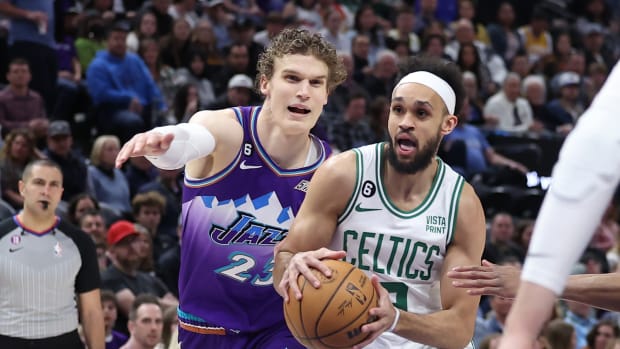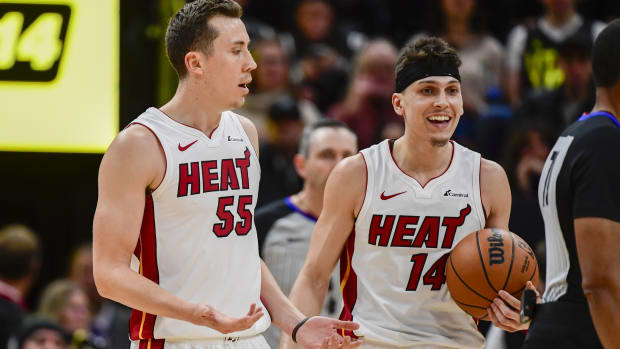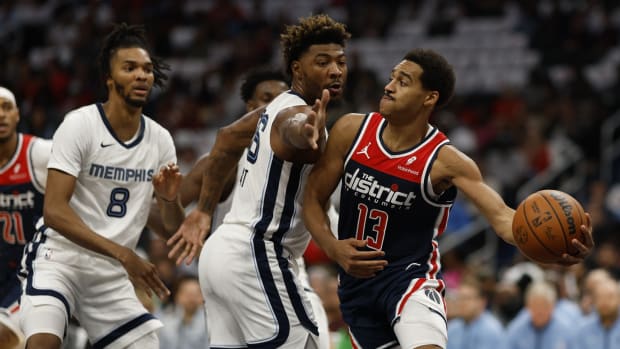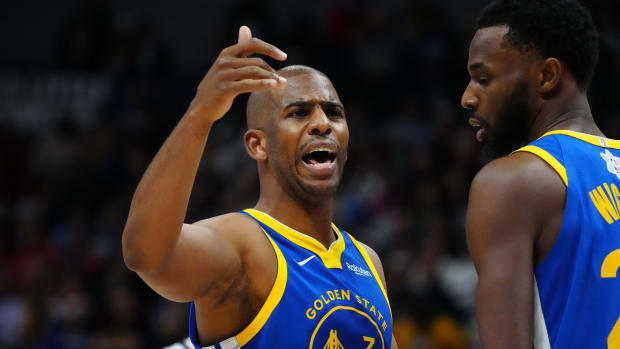Talk's over: Players must choose between playing or decertifying
On the 133rd day of the lockout, commissioner David Stern called the players' bluff: Are you going to accept the new era for the NBA, or are you going to decertify?
It is now time for everyone at the table to show his cards.
Players finished 23 collective hours of negotiation Thursday with a final offer from the owners that Stern hoped would end the lockout with minimal damage to the season. On Monday or Tuesday, the union representatives from all 30 teams will meet to decide whether they should put this offer to the entire membership for a vote. Should the players accept, Stern said they will be able to salvage a 72-game season starting Dec. 15, with the playoffs and the NBA Finals starting one week later than normal.
The final offer comes amid a swelling movement among the players to pursue decertification. They had been hoping to force the owners to compromise in negotiations by threatening to take the union's case to court. Union executive director Billy Hunter acknowledged this week that as many as 200 players were prepared to sign a petition that would send the union down a path of 45 days or longer to potential decertification. Now the players face a hard choice of gambling on the courts and the uncertain bargaining leverage of decertifying, or instead embracing the certainty of a proposal that Stern insists is the best deal they'll ever see.
Union president Derek Fisher declined to assess the quality of the offer, other than to acknowledge it wasn't good enough to earn his outright approval. Hunter said he was going to leave it up to the player representatives. "It's not the greatest proposal in the world, but I have an obligation to at least present it to our membership," said Hunter. "So that's what we're going to do."
Stern might have found a hint of optimism in this ensuing observation from Hunter: "It's been a long haul and we're coming near the end of it."
By agreeing to the terms that emerged from the most recent negotiations, the players will be giving up approximately 12 percent of their salary this year -- the pro-rated cost of missing 10 games from the schedule. If they refuse this proposal, however, Stern says the league will revert to its more punitive offer of 47 percent of basketball related income to the players, along with a more restrictive system of contracts and free agency.
The players have expressed anger and resentment over lowering their share of BRI from 57 percent last season to a range centered around 50 percent in the current proposal. "I understand from the union's standpoint it's a difficult pill to swallow right now," said deputy commissioner Adam Silver.
In exchange for surrendering close to $300 million annually, the union wanted the owners to capitulate on system issues that would maintain free agency and player movement at a level to which the players have grown accustomed. But the owners insisted that the luxury tax and other mechanisms needed to be strengthened in order to prevent rich teams from grossly outspending the smaller markets for talent.
On Tuesday, player representatives from 29 teams had decided to not send an earlier proposal to the larger membership for a vote. Instead they sent Hunter and Fisher back into negotiations for a better deal. Did they get it?
The union was unable to negotiate significant movement from the owners on the system, in part because Stern's owners have provided him with little or no room to compromise, as he hinted while acknowledging that many of his owners are unhappy with many aspects of their final proposal. And yet the latest round of negotiations spawned anonymous rumors that progress was being made, which one union source believed to be an effort by the NBA to reach out to the players in hope that creating expectations for an improved offer may entice the 450 players to demand that the proposal to be put to a membership vote. Adding to the conspiracy theory was a report put out Thursday afternoon -- and then retracted -- by former Knicks president Dave Checketts that the lockout had been resolved.
Now that negotiations have concluded, the politicking on the players' side is going to be crucial and fascinating. If the players decide there are few significant improvements on the offer they turned down Tuesday, will they say no yet again in order to pursue the drastic course of decertification? Or will they value the paychecks they'll be able to earn this season while accepting that this was the best deal they could make under difficult circumstances?
The league tried to convince the players that this proposal will ultimately provide opportunities to compete that were unavailable to most teams under the old system. "In order for us to have the kind of competitive balance we want, it restricts player movement to a certain degree," admitted Silver. "We believe we will be proven right over time that this new model -- if the players were to agree to it -- will create a better league.
"It will create one where fans in more markets will be able to hope that their teams can compete for championships; that fans can believe that a well-managed team, regardless of market size, regardless of how deep the owners' pockets are, will be in a position to compete for a championship; and that more players will be in a position to compete for rings as well. So we think this kind of system will create a better league over time. But I recognize from the players' standpoint, and from the standpoint of certain individual players, they do not see these changes as in their self-interests."
The NBA doesn't need all of the players to agree to these terms, much the same as a sizeable minority of the owners apparently isn't going to succeed in its attempt to demand deeper concessions from the union. All each side needs is a simple majority of agreement to get on with the season next month. Stern believes he can deliver the necessary 16 votes on his end. But will the players agree? The future of the NBA will swing on their vote.






























